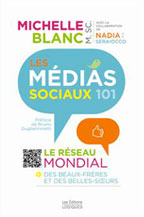Referdia de Invado International et autres achats groupés, scam ou opportunité ?
Un ami Facebook qui est désespéré et se cherche un avenir après avoir perdu son emploi me demande de l’aider à comprendre « la nouvelle opportunité du siècle » qu’est Referdia de Invado International The Next Generation of Online Buying Group (je prends un grand respire sarcastique ici). En faisant une petite recherche internet, hormis les promesses de fortune des déjà trop nombreux adeptes de la start-up, on tombe sur quelques forums dans lesquels des gens se posent des questions. Je suis entre autres tombée sur cet excellent témoignage de anthonyu dans le forum Fatwallet :
natkra90, you, like thousands others who hoped to make money on MLMs are going into this thinking that with a lot of hard work in selling their product, you could make some money, and with a lot of hard work recruiting other people who are as enthusiastic as you, you could make a lot of money. If you keep on doing what you’re doing and your recruits keep on doing what you’re doing, you could build a good downline (not sure if that’s an actual term but it’s the opposite of upline). But as you will soon find out, this will be all about recruiting people who’d be willing to pay the $500 fee. You will get a few friends and a few strangers to sign up but, like 90%+ of those who joined, your leads will soon dry out or you’ll find out that your recruits won’t be as enthusiastic as you are now and be non-performers. If you end up being in the upper 10% that makes money off this, then more power to you.
That is your picture right now but I’d like to show you the big picture. Ask yourself why these MLM “founders” have gone from one MLM to another. Was the product in the old MLM all of a sudden no good? Is there a difference between ACN energy and Invado energy? You’ll find out that it’s not about the “product”. The well has gone dry and it’s time to start a new MLM structure. The top of the pyramid moves to another organization and the thousand or so under them move with them because they’ve also made some money in the previous MLM. In short, it’s a whole new $500 entry fee for everybody and a whole new set of commissions for those high enough in the pyramid. Majority (90%) of the non-earning recruits in the old MLM have been left behind. They’re no longer needed because all they’re good for is their $500 fee. It’s time to get new recruits and get new commissions with this new company selling new (or rehashed) “products”. Have you ever asked yourself what this “company” is really about? Is it to sell tablets? Is it about energy commission? Is it a discount travel site? Are they riding on the popularity of Groupon, Living Social, etc? There is no long-term vision. Products change. They’ll try and re-invent everything they’ve previously done and see if something sticks. That’s how you know that it’s not about the product.
What you see is a legitimate way to make some money and, with a lot of hard work and “training”, an opportunity to build a “sales network”. What people here at Fatwallet are seeing is the big picture of large pyramid organizations moving from one company to another in hopes of generating a new set of commission from the new recruits, 90% oh which will never recoup the $500 fee they paid. That’s why they’re all screaming SCAM.
Pour les potes francophones, je vais vous traduire ça illico. Les entreprises de vente par palier vous demandent (pour devenir distributeur) de payer un prix d’entré et vous ferez de l’argent sur tous ceux qui suivront après vous. Vous les endoctrinerez et à leur tour ils succomberont aux promesses de richesses faciles. On appelle ça aussi une structure pyramidale et inévitablement, elle s’effondrera et beaucoup des dupes qui ont participé à « l’opportunité du siècle » perdront leur mise, qui n’est somme toute, que peu d’argent ($500), leur temps et leur rêve.
Voici maintenant un autre point de vue, celui de l’entreprise qui participe aux structures de coupons. Un billet d’Adviso (qui date déjà d’un an) qui fait une analyse des sites d’achat groupé à Montréal nous révèle que ce sont surtout les restaurants qui sont prisés dans ce genre de transaction. Or dans un article de MarketingMag on identifie deux grandes catégories d’entreprises qui peuvent user de coupons et malheureusement, à cause des coûts d’exploitation, de denrées et de personnel, les restaurants font justement partie des entreprises qui perdent de l’argent avec les achats groupés :
Pour vous donner une réponse plus nuancée, il existe deux types d’entreprises. Il y a des entreprises qui sont heureuses de proposer des rabais régulièrement, comme les zoos, parce que réduire leurs droits d’entrée n’implique pas de coût supplémentaire. Donc, plus de gens visitent leur établissement et dépensent pour les attractions et produits alimentaires. Pour elles, le modèle Groupon fonctionne parfaitement.
Par contre, pour un restaurant, les consommateurs ne dépensent souvent pas davantage que ce à quoi leur donne leur aubaine du jour, et ne reviennent pas. Parce que les commerçants ont des frais de nourriture et de service associés à ce type d’offre, ils perdent de l’argent. Au final, les Groupon de ce monde continueront sans doute de répondre aux besoins de segments particuliers d’attractions et de services spécialisés, mais ils ne réussiront pas à bien servir les commerçants de meilleure qualité dans un certain nombre de catégories importantes. Je ne dis pas qu’ils vont disparaître, ils vont tout simplement devenir plus modestes.
Par ailleurs, les sites d’achats groupés sont en perte de vitesse, le leader Groupon est en difficulté avec la SEC américaine, Facebook et Yelp ne participent plus au phénomène de group buying et Forrester souligne que les clients commencent à souffrir de la « fatigue du rabais ».
Forrester Research analyst Steven Noble says consumers next year will start being affected by “deal fatigue”, with too many operators of various sizes offering too much different deals for them all to be a success.
“There will be a gap opening between the larger and the marginal operators,” Noble told SmartCompany this morning.
Côté client, je vous suggère de lire mes billets Groupon ou pourquoi ça me tape déjà sur les nerfs et Groupon, précisions additionnelles sur le pourquoi Groupon ça me fait rire . D’ailleurs je ne parlerez plus de “pôle dancing/fitness/exercice/whatever” puisque le flot de commentaires qui a été activé par ces deux derniers billets est assez pour moi. Je vous invite aussi à lire l’histoire d’horreur d’un boucher dans l’article de TheStar Roseman: Why you might be wary of Internet coupons.
Article publié le jeudi, 5 avril 2012 sous la rubrique Commerce électronique: mythes.










